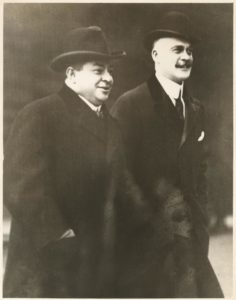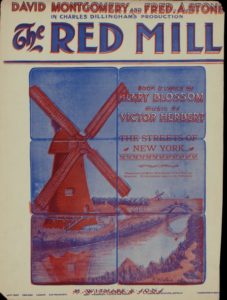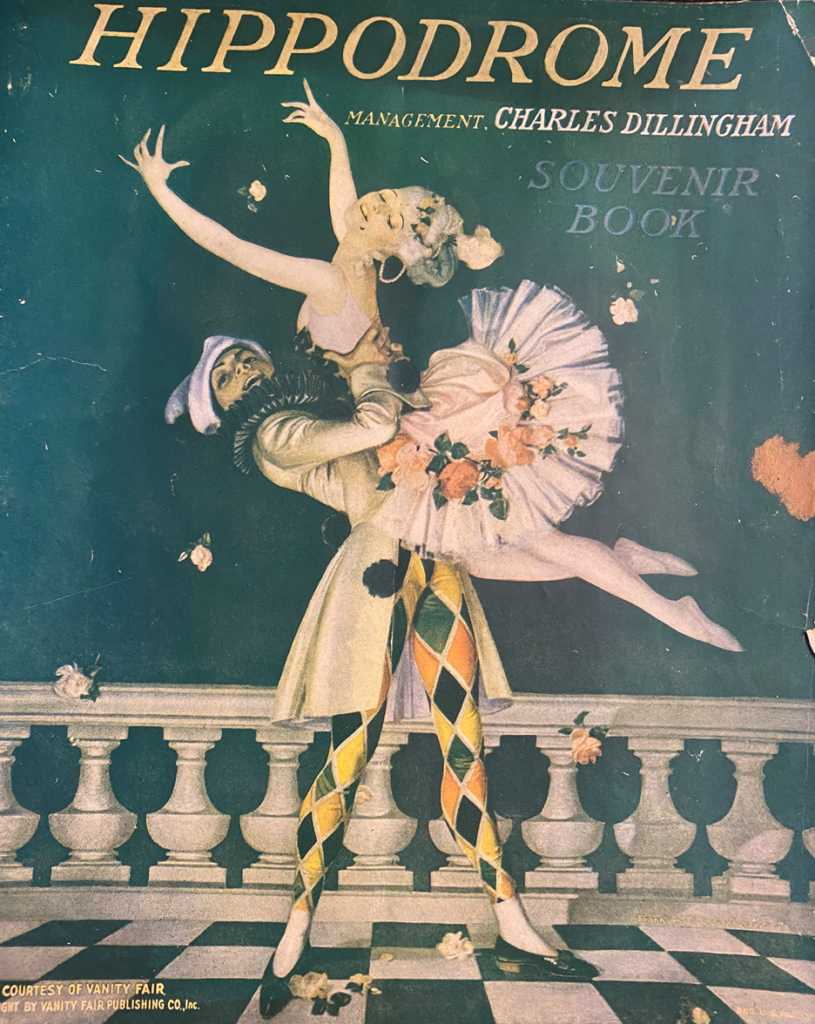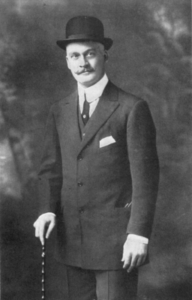By Christina Volpe
“Charles Dillingham was—and still is—a Hartford boy.” The Hartford Courant introduced the impresario as a local in their December 9, 1928 full-page spread outlining Dillingham’s life and career. After growing up in Hartford, Charles Dillingham explored numerous career paths including newspaper publishing, politics, and—most famously—theatrical managing and producing. His work brought him in contact with the biggest stars of the early 19th century theater world.
Dillingham’s Early Life and Career
Parents Josephine (née Potter) and Edmund B. Dillingham welcomed their son, Charles Bancroft Dillingham, on May 30, 1868. Edmund was a pioneer in advertising and established Dillingham’s Newspaper Advertising Company in 1870, headquartered in the heart of Hartford. Charles attended school in Hartford, delivering The Courant on the weekends and following graduation, the paper promoted him to the circulation office. Following a brief sabbatical west, Dillingham returned to Hartford to work as a reporter for the Hartford Post.
Finding his hometown dull in comparison to the adventures he witnessed in the West, Dillingham left Hartford to take a position writing for the Times-Herald in Chicago. Shortly after the United States admitted Washington as a state in 1889, Dillingham moved to Spokane and set up the Spokane Spokesman newspaper with a few other associates. Dillingham used his platform to promote the US Senate campaign of the state’s first governor, Watson C. Squire. For aiding in his win, Senator Squire brought Dillingham to Washington, D.C. as his personal secretary.
Friendship with Charles Frohman

Charles Frohman and Charles Dillingham, circa 1900-1915 – The New York Public Library Digital Collections
Feeling confined by his occupation once again, Dillingham wrote his first stage production, a play titled Twelve P.M., which he premiered in 1894 in New York City at the Bijou Theatre. Dillingham attended the performance each night and though it was a failure, the production changed his life in an unexpected way. One evening the well-established theater manager and producer Charles Frohman attended an evening performance of Twelve P.M. and—according to Frohman’s brother, Daniel, and editor Isaac F. Marcosson—later wrote to Dillingham that “your play lacks all form and construction, but I like the lines very much. Would you like to adapt a French farce for me?” Dillingham was quick to recognize an opportunity to become friends with Frohman who was a co-director of the Theatrical Syndicate, an organization co-founded by Frohman in 1896 that monopolized theater bookings throughout the country and abroad. Frohman and Dillingham became inseparable companions. They shared a summer estate called Hiddenbrook in Purchase, New York and often escaped there together on weekends. Dillingham and Frohman remained close until Frohman’s untimely death aboard the RMS Lusitania on May 7, 1915.
Theater and Entertainment

The Streets of New York sheet music, a play produced by Charles Dillingham – The New York Public Library Digital Collections
Prior to Frohman’s death, Dillingham began representing English actress Julia Marlowe; she had been signed under Frohman for several years previously. Dillingham later became associated with A. L. Erlanger and Florenz Ziegfeld; together the three impresarios formed A.L. Erlanger Amusement Enterprises, Inc. In the early 1900s, the trio went their separate ways to manage their own theaters. Florenz Ziegfeld owned the famous New Amsterdam Theatre where he served as patriarch of the Ziegfeld Follies. Dillingham, on the other hand, became manager of the Hippodrome, the largest theatrical venue in the world at the time. Harry Houdini performed his famous vanishing elephant act for Dillingham at the Hippodrome for nine weeks in 1918. Dillingham later opened a second theater, aptly named the Globe Theatre; the only theater in New York City with a removeable roof. In 1915, Dillingham hired Russian ballerina Anna Pavlova to perform there for six months. He also managed and promoted the careers of Irving Berlin, Marylin Miller, Fred Astaire, Victor Herbert, Jerome Kern, and Vernon and Irene Castle.
At one point in time Dillingham served as puppet-master to a nation greedy for stage entertainment. The Great Depression severely fractured the theater world, however, and brought Charles Dillingham great financial losses. He made a brief comeback in 1934 but died shortly thereafter on August 30, 1934. Charles Dillingham is interred at Cedar Hill Cemetery in Hartford, Connecticut.
Christina Volpe is a public historian with an MA in Public History from Central Connecticut State University where she focused on digital curation and historic preservation. Christina serves as Curator of The Barnes Museum in Southington, Connecticut.










